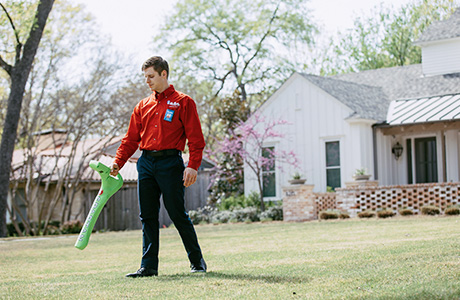
July 04/2023
Why Do I Have a Clogged Sewer Line?
If you’ve ever dealt with backed-up plumbing fixtures or a slow-draining sink, then you know how messy a clogged sewer line can be. A clogged sewer line can be a nightmare if not addressed in a timely manner.
In this article, we will walk you through the main causes of a clogged sewer line and what you can do to keep your sewer line clear. We will also highlight the symptoms of a clogged sewer line to help you take prompt action.
Common Causes of a Clogged Sewer Line and How to Prevent It
-
Flushing Inappropriate Items
This is perhaps the most common culprit behind a clogged sewer line. Non-flushable items such as baby wipes, diapers, feminine hygiene products, paper towels, and condoms do not break down like tissue paper does. When you flush these items down the toilet, they can get caught in the pipes, accumulate over time, and create blockages. To avoid these issues, it's best to dispose of non-flushable items properly in the trash.
A broken or damaged sewer line may cause a blockage and impede proper wastewater flow. A sewer line can sustain damage from construction work, extreme temperature fluctuations, soil settlement, and more. It’s advisable to inspect your sewer lines regularly to ensure they are in good condition. If you have construction work planned on your property, communicate the location of your underground pipes and plumbing systems to the contractors. Make sure they are aware of the potential risks associated with digging or excavation near those areas.
Tree roots naturally grow toward sources of water in the soil. If you have trees near your sewer lines, the roots may infiltrate the pipes through tiny cracks or loose joints, causing a sewer line clog. Older sewer lines are more susceptible to tree root damage. To minimize the risk of tree root intrusion, it’s advisable to keep trees at least 10 feet away from your sewer lines. Also, when planting trees on your property, consider their potential growth and root spread.
Fats, oil, and grease in liquid form may appear harmless since it flows easily down the drain. However, as the liquid cools, it congeals and hardens, thereby causing sewer line clogs. The ideal way to dispose of fats, oil and grease is to pour the liquid into a heat-resistant container and let it cool down and solidify. Thereafter, throw it in the trash bin.
Signs of a Clogged Sewer Line
- Multiple fixtures are draining slowly
- Bubbling or gurgling noise from the toilets and bathtubs
- Pools of water in your lawn when it hasn’t rained or snowed recently
- Backed-up plumbing fixtures
- Offensive odors coming from your drains
Trust the Team at Mr. Rooter Plumbing for Drain Cleaning and Sewer Line Repair
If you’ve noticed signs of a clogged sewer line and are looking for an experienced plumber to help you with drain cleaning or sewer line repair, look no further than Mr. Rooter Plumbing. We are a reputable plumbing service that you can trust to perform an accurate diagnosis of the problem and provide you with a reliable solution.




